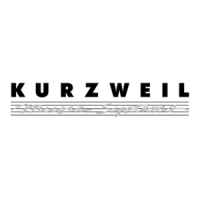10-158
KDFX Reference
KDFX Algorithm Specifications
905 EQ Morpher
906 Mono EQ Morpher
Parallel resonant bandpass filters with parameter morphing
PAUs: 4 for EQ Morpher
2 for Mono EQ Morpher
The EQ Morpher algorithms have four parallel bandpass filters acting on the input signal and the filter
results are summed for the final output. EQ Morpher is a stereo algorithm for which the left and right
channels receive separate processing using the same linked controls. Mono EQ Morpher sums the input
left and right channels into a mono signal, so there is only one channel of processing. Both algorithms have
output panning. In EQ Morpher, a stereo panner like that in INPUT page is used and includes a width
parameter to control the width of the stereo field. Mono EQ Morph uses a standard mono panner for
positioning the mono signal between the left and right speakers.
Figure 10-72 Mono EQ Morpher (EQ Morpher is similar)
For each filter, there are two sets of parameters, A and B. The parameter Morph A>B determines which
parameter set is active. When Morph A>B is set to 0%, you are hearing the A parameters; when set to
100%, you are hearing the B parameters. The filters may be gradually moved from A to B and back again
by moving the Morph A>B parameter between 0 and 100%.
The four filters are parametric bandpass filters. These are not the usual parametric filters you are familiar
with. Normal parametric filters boost or cut the signal at the frequency you specify relative to the signal at
other frequencies. The bandpass filters used here pass only signals at the frequency you specify and cut all
other frequencies. The gain controls for the filters set the levels of each filter’s output. Like the normal
parametric filters, you have control of the filters’ frequencies and bandwidths. The Freq Scale parameters
may be used to adjust the A or B filters’ frequencies as a group. This allows you to maintain a constant
spectral relationship between your filters while adjusting the frequencies up and down. The filters are
Pan
L Input
R Input
Out Gain
L Output
R Output
#1
#2
#3
#4
In/Out
EQ Gain
EQ Gain
EQ Gain
EQ Gain

